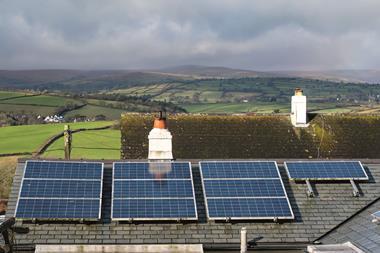The UK Green Building Council attributes 40% of the UK’s total carbon emissions to the built environment. It is therefore imperative – pandemic or no pandemic – that we continue to take steps to achieve the government’s ambition of net-zero greenhouse gas emissions by 2050.

It was always going to be a big ask, especially in the wake of Covid-19. However, I hope this global pandemic will prove to be the catalyst needed to spark real change.
The problem is not that we are unable to build new, energy-efficient homes and commercial spaces; it is that 80% of the building stock that will exist by 2050 has already been built – and as much as 40% was built before 1985 when part L of the Building Regulations (conservation of fuel and power) was introduced.
Focusing on the commercial sector, in particular, we need to see the government incentivising property owners to use this time of great change to future-proof their portfolios and decarbonise existing stock by accelerating the retrofitting of low-carbon technologies, which will be vital in helping the UK achieve its goal. This is particularly true of buildings with multiple occupants, where investment in anything that does not offer an immediate financial reward is often put off.
The correct pricing of retrofit measures can be difficult for owners to estimate, as can the impact of any retrofit on the asset’s operating and maintenance costs. However, by collaborating early on, it is possible to minimise risk and ensure effective allocation of resources to deliver maximum return on investment.
For instance, the retrofit of energy-efficient systems can deliver substantial lifetime savings in energy costs, demonstrate improved building performance and result in increased occupancy rates at a time when many occupiers are reconsidering their requirements for a physical office space in light of working-from-home initiatives.
While moving the economy towards net zero may come at a premium in the short term, ensuring buildings are performing at optimum levels will deliver long-term benefits, and Covid-19 presents us with a unique opportunity to refocus on that, prioritising sustainability and accelerating a transition towards a carbon-neutral 2050.
Richard Steer is chairman of Gleeds Worldwide
































No comments yet